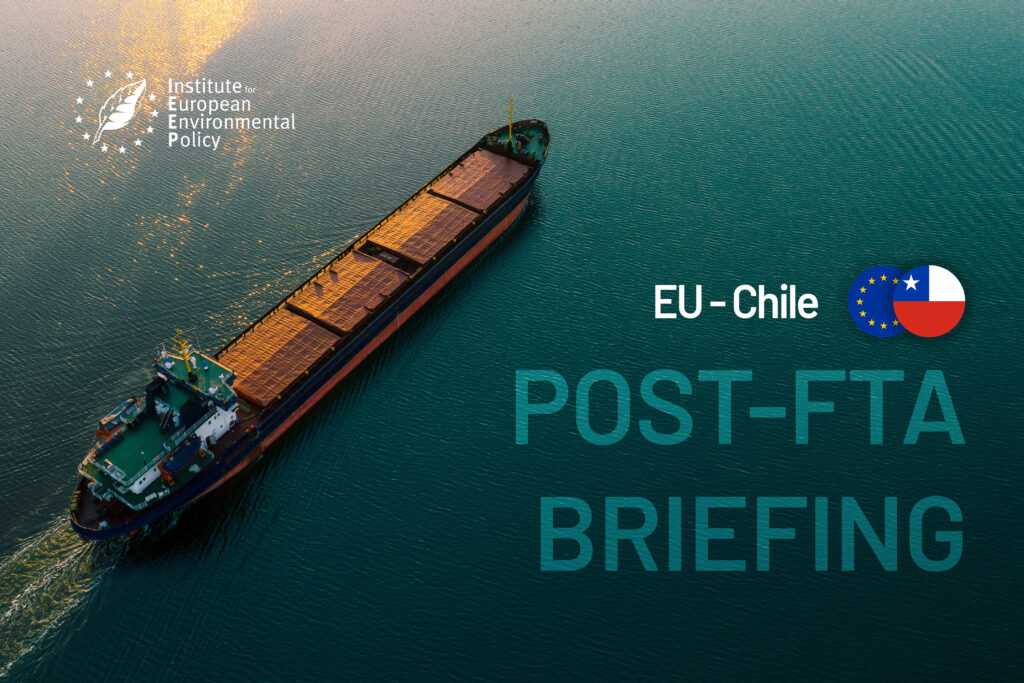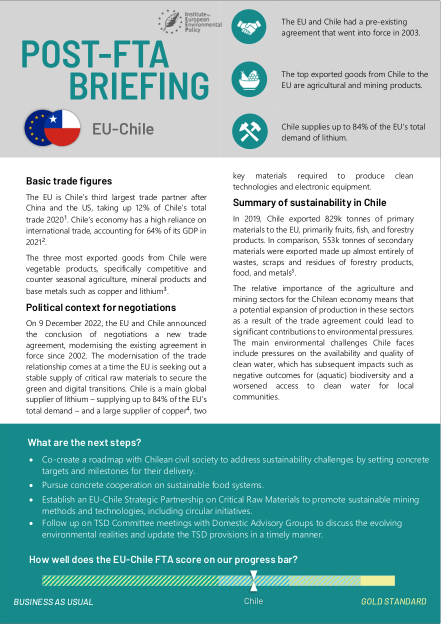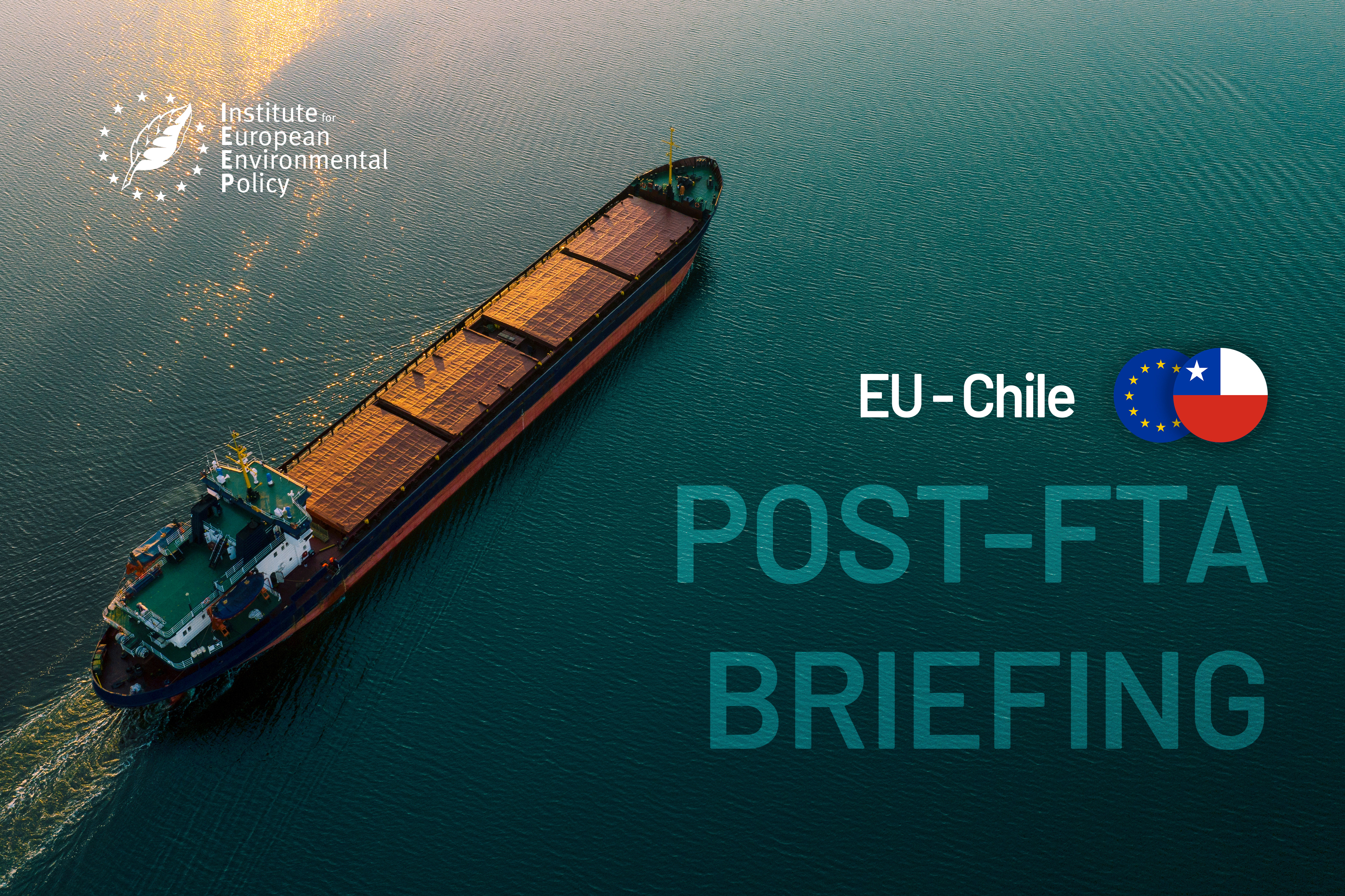AUTHORS: Eline Blot, Susanna Li
This briefing assesses the environmental credentials of the EU-Chile trade agreement and is part of an IEEP series aimed at monitoring upcoming free trade agreements (FTAs) that are being negotiated and concluded.

As the second trade agreement concluded after the European Commission’s communication on the new approach to TSD Chapters, the EU-Chile Free Trade Agreement (FTA) text has been published during a particularly scrutinous period. The briefing assesses the new provisions, articles and thematic chapters introduced in the EU-Chile FTA and speculates whether these additions are as ambitious as those in the EU-New Zealand FTA.

This briefing is part of an IEEP series aimed at monitoring upcoming free trade agreements (FTAs) that are being negotiated and concluded. For more briefings assessing the environmental sustainability of future FTAs, consult this page.
On 9 December 2022, the EU and Chile announced the conclusion of negotiations a new trade agreement, modernising the existing agreement in force since 2002. The modernisation of the trade relationship comes as the EU is seeking out a stable supply of critical raw materials to secure the green and digital transitions.
The three most exported goods from Chile were vegetable products, specifically competitive and counter seasonal agriculture, mineral products and base metals such as copper and lithium. In fact, Chile is a main global supplier of lithium – supplying up to 84% of the EU’s total demand – and a large supplier of copper, two key materials required to produce clean technologies and electronic equipment.
The relative importance of the agriculture and mining sectors for the Chilean economy means that a potential output increase in these sectors could result in significant contributions to environmental pressures. The main environmental challenges Chile faces include pressures on the availability and quality of clean water, which has impacts such as negative outcomes for (aquatic) biodiversity and a worsened access to clean water for local communities.
The EU-Chile trade agreement has integrated new sustainability elements into the TSD Chapter and across the rest of the FTA. Yet, the text is a step back as the Paris Agreement is not an essential element of the deal and thus non-compliance is not sanctionable. However, the TSD dispute settlement has improved compared to older FTAs. For example, it requires the non-compliant Party to formulate and implement actions to become compliant. Moreover, the Review article is a positive addition to create amenable TSD Chapters, which hopefully is included in future TSD Chapters.
As with the EU-New Zealand FTA, the cooperative activities in the context of environmental sustainability remain the primary tool to foster sustainable practices, rather than the development of specific targets, actions, and timelines. Therefore, targeting and following up on the activities in the various working groups and committees could impact the sustainable trade between the EU and Chile.
Recommendations
- Co-create an implementation roadmap with Chilean civil society involvement to address sustainability challenges by setting concrete targets and milestones for their delivery.
- Pursue concrete strong cooperation on sustainable food systems as Chile is a large supplier of counter seasonal agri-food products.
- Establish an EU-Chile Strategic Partnership on Critical Raw Materials to promote sustainable mining methods and technologies, including circular initiatives.
- Follow up on TSD Committee meetings together with the Domestic Advisory Groups to discuss the evolving environmental realities and utilise the Review article to update the TSD provisions in a timely manner.


